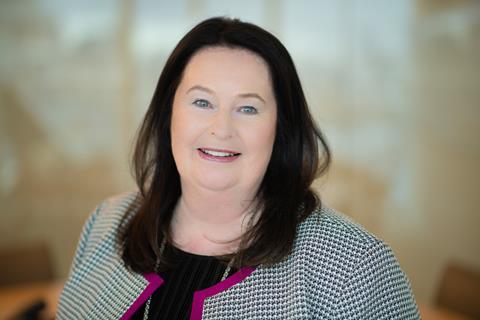As they near the end of their time on the Law Society’s main board, its independent members tell Eduardo Reyes about their experience of serving
Accounts of the Law Society’s meetings and deliberations from a century ago are a revelation. At 48 members its Council, which governed its affairs, one could characterise as a small parliament that conducted itself like an oversize committee. It was relatively easy for ordinary members to call a ‘special meeting’ to try and direct its deliberations, and some members remained on the Council for a very, very long time. In the 1920s, death in office was not uncommon, and a preceding serious illness did not always lead to a senior office-holder passing on their duties.
The rules on meetings and the Society’s governance were short. As a result, some things happened quickly, and others slowly – the speed not always closely linked to the relative urgency of the matter in hand.
Perhaps in the inter-war period that was good enough. But by the start of the 21st century much had changed. The Council had roughly doubled in size, and the complexity of the Law Society’s affairs increased. Independent oversight of the Society, from ‘super regulator’ the Legal Services Board, was on the horizon. More importantly, governance norms had changed, and there was pressure for quicker decision-making.
Governance reforms designed to reflect that have a chequered history. Proposals to reduce Council’s headcount were among those that failed to get necessary Council approval.
But other changes were passed – notably the proposal to create a ‘main board’, to include four independent members. The first four to hold these positions are Penelope Warne, senior partner of international firm CMS; Bill Butler, by background an accountant with wide regulatory experience; Vicky Lockie, an in-house lawyer who has held senior governance positions; and Judy Craske, whose service and management career has included time in the Royal Air Force – rising to the rank of squadron leader – a logistics company and the nuclear industry.

They will step down in June, and their time in post has included challenging events for the Society – not least the disruption of a major fire at Chancery Lane and the stresses of Covid-19 lockdowns and restrictions.
‘After five years,’ Butler reflects, ‘you do start to become part of a very venerable organisation. It’s probably a good time to get some other people in who haven’t … been “captured”.’ By his own account, though, he has not yet lost his status or value as an outsider. ‘I still can’t find my way to any of the rooms from the reception area.’
As the board’s independent members, their value in significant part resides in their ability to challenge decisions, standards and the robustness of the board’s strategy. In an organisation previously unused to such independent challenge, how satisfactory was that role?
‘I think the quality of debate in the board has been robust,’ Butler says. ‘Although it’s sometimes taken longer to get to where I thought we should be, and I think where the non-executive part of the board felt we should be, on balance, we’ve usually got there eventually. And so it’s a good quality arrangement and I hope we’ve paved the way for others.’
‘It’s providing that challenge and asking the questions in a different way,’ Lockie continues. ‘You can see people sometimes pause for thought at the board meetings, trying to work out what the correct answer is. But that’s the value – that it makes people approach an issue in a different way because you’re coming with a different background and from different organisations, where you’ve seen probably the same old problems… I have always seen that as my job at board, and I’m sure I’m not always totally popular as asking the difficult question and providing that challenge.’
A different beast?
All professional membership organisations have their exceptional features. So appreciating what characterises the profession is important, and that understanding should inform a representative body’s strategy. The range and variety of the Society’s membership is vast.
‘A lot of what the Law Society does is for a very broad spectrum of practitioners and big firms are only one element of that,’ Warne says. ‘But it’s important that they see the benefit of everything that the Law Society does, and I think the Law Society was particularly great on the advice it gave to the whole membership during Covid… the Law Society [has just released] a very important climate change paper, and that I think will be very, very well received by the profession.
‘One of the things which I have done during my tenure is to start … The Law Society’s “Compact and Forum” with the World Bank, which is uniting law societies across all UN countries… This is for the purposes of supporting and promoting the rule of law and you will find that every large law firm, even if they say, “I don’t need training from the Law Society because we’ve already got it”, they will also say, “I want to support the Law Society on big policy issues and in supporting the rule of law and access to justice across the world”.’
'A lot of what the Law Society does is for a very broad spectrum of practitioners and big firms are only one element of that'
Penelope Warne, CMS
Within Chancery Lane itself, the board has steered a process designed to take the Society’s staff to new ways of working. Elements of that included the refurbishment of the building, the introduction of new technology that enabled remote and flexible working, and an attendant reduction in office space – ending fixed desks. (The overall project was dubbed ‘Shaping Our Future’.)
This process was under way when the Society had its business continuity tested by a major fire, on the evening of Saturday 1 February 2020. The fire, over several floors of 114 Chancery Lane, forced the closure of the building (and gutted the offices of the Gazette). By coincidence, a board meeting was already scheduled for the Monday, Craske recalls: ‘We all arrived to find fire engines around the building.’
Lockie says: ‘I think the measure of the success of that project was the fact that the Law Society did cope well with the fire, which was almost like a dry run for the pandemic… If that had happened within a year of us first arriving, I don’t think the Society would have coped.’ Whereas, she notes: ‘It did cope very well and now has embraced a much more modern way of working and, as many organisations have, a new hybrid way of working… Everybody’s trying to find their feet with that. But I think the Society is doing pretty well.’
The shift to technology that underpins this should not be confused with the strategy needed by a membership organisation. Craske points out: ‘The management and leadership of people, whether volunteers or staff, needs to be consistent and visionary, and that’s how a professional membership organisation will last into the future. And that’s the agenda, and hopefully the legacy I’ve helped put into the mindset of those managing the organisation.’
Governance everywhere has become increasingly professionalised, and the value of independent board members confirmed in countless business studies. Surely, though, the legal profession has peculiarities that must be deeply understood in order to provide effective external challenge.
Butler, whose experience includes working for the health regulator (now the Care Quality Commission), the Gambling Commission and board membership of the Gangmasters and Labour Abuse Authority, says many elements of good governance in regulated environments are common.
‘It’s the usual 80/20 rule… 80% of it is the same,’ he says, ‘if you’re licensing somebody as a door supervisor, you still want to know that they’re a fit and proper person and that they have done enough training to allow them to begin to fulfil that function. When they’re fulfilling that function, you want them to comply with the standards that you’ve set. So, those parameters of regulation are the same wherever you are.’
There is a legacy to Butler’s term of office: ‘We managed to create a finance and investment committee with external expertise, which I’m really pleased about, and I hope that my lasting bequest to the Society is my insistence that the [Society’s] deputy vice-president should be an ex officio member of that, so they have to sit through a full finance cycle before they can exercise presidential responsibility.’ (Lubna Shuja is the first Law Society president to take this route to the presidency).
Craske has brought an important perspective to the board in another area – she lives in Wales, and reality within the England and Wales jurisdiction is changing. ‘We’ve seen the National Board for Wales arrive,’ she points out. The Society’s perspective cannot be ‘London-centric’, and as the distinct status of Wales develops in key ways, ‘there’s going to be a big piece of work to bring the relationships together’.
Ultimately the board derives its authority from the Council, which on the evidence has confidence in the board. As Lockie concludes: ‘I think the Council continues to recognise the importance of the board and they have, over time, extended the powers of the board… recently they’ve agreed that there can be additional powers of co-option which, again, recognises that there will be skill sets that aren’t present in members of Council that may be needed to help support the operation of the Law Society.’
- Amerdeep Somal, a solicitor with wide regulatory and governance experience, has been appointed as the next Law Society Board chair, taking over from Robert Bourns




































2 Readers' comments